Leveraging AI for Ethical and Equitable HR Processes: A Pathway to Inclusive Organizations
Artificial intelligence (AI) has become a powerful tool with vast potential to transform various aspects of business operations. When utilized ethically and equitably, AI can revolutionize Human Resources (HR) processes, enabling organizations to streamline their operations, improve decision-making, and foster a more inclusive and diverse work environment. However, deploying AI in HR demands careful consideration to ensure that the technology upholds ethical principles and eliminates biases. In this blog post, we will explore how organizations can navigate the ethical and equitable use of AI in their HR processes.
Establishing a Foundation of Ethical Guidelines: To embark on an ethical AI journey, organizations should begin by developing a set of comprehensive guidelines that outline the principles and values they aim to uphold. These guidelines must address issues such as transparency, fairness, accountability, and data privacy. By establishing a strong ethical foundation, organizations can foster a culture of responsibility and trust around AI implementation.
Identifying Ethical and Unbiased Data Sources: AI systems heavily rely on data for training and decision-making. It is crucial to ensure that the data used in HR processes is both diverse and unbiased. Organizations should regularly audit their data sources to identify and rectify any biases that might exist. Furthermore, implementing mechanisms for ongoing data validation and monitoring can help prevent biases from seeping into the AI algorithms.
Collaborative Human-AI Decision-Making: While AI can offer valuable insights, human judgment and intuition remain essential in HR decision-making. Organizations should encourage collaborative decision-making processes that involve both AI systems and human professionals. By combining the strengths of AI and human expertise, organizations can achieve more accurate, unbiased, and fair decisions in areas such as recruitment, performance evaluations, and promotions.
Regular Algorithm Audits and Bias Mitigation: AI algorithms are not immune to biases that exist in society. Organizations should conduct regular audits of their AI algorithms to identify and mitigate biases that might arise. This involves examining the decision-making patterns of the algorithms and verifying whether they align with the organization’s ethical guidelines. By continuously refining and improving the algorithms, organizations can enhance fairness and equity in their HR processes.
Transparency and Explainability: Employees have the right to understand how AI systems impact HR decisions that affect their careers. Organizations should prioritize transparency by providing clear explanations of how AI is used, the factors it considers, and the limitations of its decision-making. This transparency not only helps build trust among employees but also allows for informed feedback and continuous improvement of AI systems.
Continuous Learning and Adaptation: AI technologies are constantly evolving, and organizations must stay updated with the latest advancements and research in the field of ethical AI. Engaging in ongoing learning and adapting HR processes accordingly will enable organizations to address emerging ethical concerns effectively. By fostering a culture of learning, organizations can ensure that their HR practices align with evolving ethical standards.
Ethical and Inclusive AI Skill Development: To ensure the ethical and equitable use of AI in HR, organizations should invest in AI skill development for their HR professionals. Providing training on the ethical implications of AI, data handling, and bias mitigation techniques will equip HR teams with the necessary expertise to leverage AI responsibly. Additionally, organizations can encourage collaboration between HR professionals and data scientists to foster a multidisciplinary approach to AI implementation.
By embracing ethical and equitable AI practices in HR, organizations can unlock numerous advantages. They can streamline recruitment processes, minimize unconscious biases, and ensure fair evaluations and promotions. Moreover, AI can help identify patterns of inequality, enabling proactive interventions to address diversity gaps and foster a more inclusive work environment.
However, it is essential to remember that AI is a tool, and its effectiveness depends on the values and intentions of those who implement and oversee its use. Therefore, organizations must prioritize the human element, combining the strengths of AI with the expertise and empathy of HR professionals.




